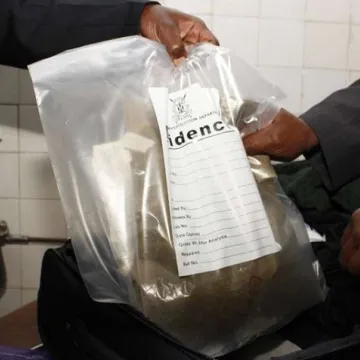KRA’s new car import tax plan frozen just a day to its roll out

While KRA stated that it had consulted "stakeholders" prior to implementation of a new tax model on imported cars, the petitioner contends that such consultations were narrowly confined to car dealers, excluding consumers and the general public.
The High Court has suspended the implementation of the Kenya Revenue Authority’s (KRA) revised Current Retail Selling Price (CRSP) schedule for imported used vehicles, which was set to take effect from July 1st, pending the hearing and determination of a legal challenge.
Justice Joe Omido on Monday certified as urgent and granted interim orders in a case filed to stop the rollout of the revised CRSP schedule, which was set to take effect at the start of the fiscal year 2025/26.
"Pending the hearing and determination of the application inter partes, the circular dated May 22, 2025 under Ref: C&BC/HQ/1 titled "Forwarding of the updated CRSP list", and the Kenya Revenue Authority notice on vehicles imported into the country, Be and is hereby stayed and/or suspended", the judge ordered.
The petitioner argues that the new CRSP list was introduced without meaningful public participation, in violation of constitutional requirements under Article 10 and Article 201, which mandate inclusive engagement in legislative and public finance processes.
While KRA stated that it had consulted "stakeholders," the petitioner contends that such consultations were narrowly confined to car dealers, excluding consumers and the general public.
The petitioner also argues that the CRSP schedule, issued by KRA's Commissioner for Customs and Border Control and Commissioner General, derives its authority from Section 122 and the Fourth Schedule of the EAC Customs Act and is, therefore, subject to Article 94(6) of the Constitution.
Furthermore, the court has been urged to compel KRA to produce proof of the identities of these stakeholders consulted and to provide details of the engagement process.
As such, the CRSP consequently qualifies as a statutory instrument under the Statutory Instruments Act and should have complied with procedural requirements, including laying before Parliament, which it allegedly failed to do.
The petitioner also challenges the 30-day implementation notice, terming it unreasonable, arbitrary, and a violation of Article 47 of the Constitution, which guarantees fair administrative action.
It is argued that the short notice period fails to account for the legitimate expectations of importers and the public who placed vehicle shipment orders under the existing 2019 CRSP schedule.
Citing industry practice, the petition highlights that a typical vehicle import process—spanning procurement, shipping, and clearance—can take between 3 to 6 months. As such, the abrupt shift risks unfairly penalising importers who had already committed funds based on the previous valuation framework.
The court suspended the implementation of the revised CRSP list until July 17, 2025, and directed that the application, petition, and all related documents be served on the respondents.
On May 30, KRA announced that, effective July 1, it would implement the new Current Retail Selling Price (CRSP) schedule, changing how customs duty on imported second-hand cars is calculated.
Under the new framework, tax assessments will be pegged to the actual invoice value of imported cars – subject to documented proof such as purchase receipts and shipping records, submitted through the Integrated Customs Management System (iCMS).
While the move is positioned as a step towards global best practice, enhanced transparency, and legal compliance, it has also triggered a wave of critical questions, cautious optimism, and deeper unease within the public discourse – particularly among importers, dealers, and buyers.
The petition also argued that the new CRSP was rushed and is full of serious mistakes and missing information, making it unreliable as a proper basis for calculating taxes.
“For instance, it omits and/or fails to provide for several vehicle models that are Imported into the country by car dealers and individual customers. In other instances, it erroneously matches car models with non-existent features including wrong fuel types, chassis numbers and attaches different values to the same car model. Some of these vehicles are already in the high seas enroute to the country,” reads the petition in part.





